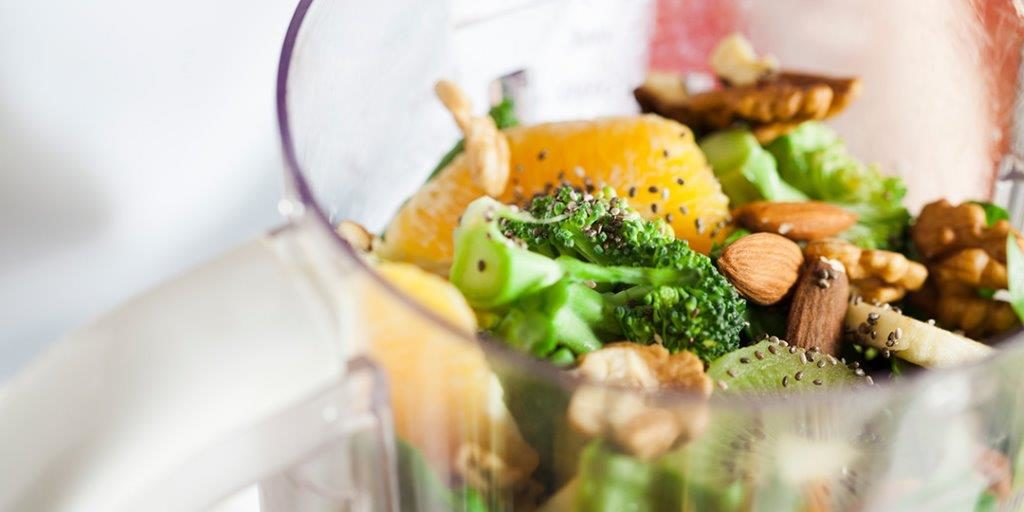
Could souping be the new juicing?
Juicing has been around for a while and is often used as a form of detoxing. The idea is to get as many nutrients as possible from fruit and vegetables in an easy way, cutting down on solid food as you do.
However, juicing isn't all it's made out to be, as you actually lose nutrients due to the fact the fruit oxidises quickly. You also miss out on most of the fibre contained in fruit. On top of this, you get a big dose of sugar, which can give you a temporary high before you crash, while juice is not filling at all, so you'll feel hungry all the time.
In short, juicing isn't the best option if you want to make the most of nutrient-rich fruit and vegetables. This is why souping could be a much better option.
There are so many benefits to swapping your juice for soup, which is why this could be the best way to have a filling and healthy meal with minimal effort. Here's why souping could be your new juicing:
Soup is easy to make
It's really hard to mess up soup, even if you aren't much of a chef. All you really need is a good quality stock, a big, deep pan and all your vegetables, pulses and whatever else you want to throw in.
Save the seasoning for when your soup is cooked to allow all the flavours to settle and to stop yourself from adding too much salt. Other than that, you just let your pan simmer on a low heat, giving it a good stir every now or then.
You can eat chunky or smooth soup – all you need is a blender – giving you some different texture options to keep meals interesting.
The nutrients don't vanish
While boiling vegetables makes them lose nutrients, you don't lose anything when it comes to soup. The nutrients lost during the boiling process go into the liquid of your soup so they are still there and not broken down.
This means that your soup contains a lot of goodness and has a lot more benefits than juice. On top of this, you get all the fibre that you lose when juicing, even if you blend your soup down.
Ultimately, soup is packed with more nutrients so you get all of your recommended daily allowances in an easier way.
You've got lots of options
There are so many different options when it comes to soup. You can make soup out of most combinations and include lots of different extras, like lentils, chickpeas and beans, in order to boost the protein content.
You can also use meat or fish to bulk out your soup even more, which is a perfect way to use leftovers and ensure nothing goes to waste. This means you know you're going to get a hearty bowl of soup that is incredibly filling and will keep you going for the rest of the day.
Simple to prepare in advance
You might think that preparing all this soup will take a lot of work, but the joy of soup is that you can easily make big batches so you have portions at the ready. All you need to do is portion your big batch of soup out in containers or freezer bags and freeze them.
This means you can just grab a portion when you need one and reheat it in the microwave or on the hob. Just be sure to mark what type of soup is in each bag, along with the date that it went in the freezer so you can be sure your soup is still at its best.
You don't need to extreme diet
Souping doesn't need to be extreme, as you're getting lots of nutrients and goodness. It's perfectly fine to have one soup meal a day or take it up to two meals as it will still provide you with a balanced diet, so long as you eat healthy meals the rest of the time.
You also don't just have to stick to soup. Enjoy a crusty wholemeal roll or flatbread to make it a bit more filling, while adding potatoes to your soup with make it thicker and keep you satisfied for longer.
Soup is a great way to watch what you eat without having to be extreme, which is why it could be the best alternative to juicing.




